
MacBook Neo
https://www.apple.com/macbook-neo/
Motorola GrapheneOS devices will be bootloader unlockable/relockable
The article discusses the potential security and privacy benefits of the GrapheneOS mobile operating system, which is designed to provide enhanced security and control compared to mainstream mobile OS options.

Nobody gets promoted for simplicity
The article argues that companies often reward complexity over simplicity, leading to convoluted solutions and processes. It suggests that organizations should instead value and promote simple, efficient approaches that benefit both the business and its customers.
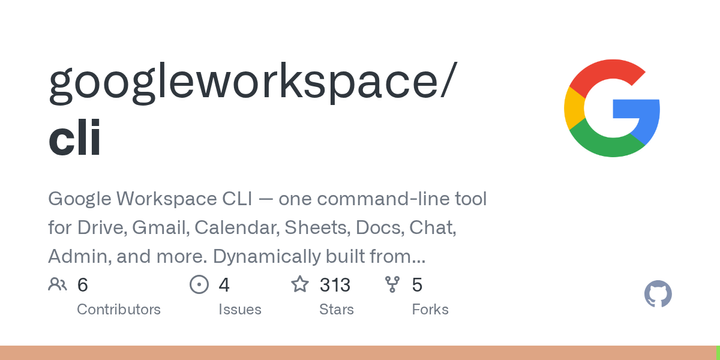
Google Workspace CLI
The Google Workspace CLI is a command-line tool that allows users to manage their Google Workspace (formerly G Suite) accounts and services from the terminal. It provides a range of functionalities, including user and group management, as well as domain and application administration.
Something is afoot in the land of Qwen
The article discusses the development of Qwen, a new open-source search engine that aims to challenge the dominance of Google and other major search engines. Qwen is built on top of the Wikidata knowledge base and utilizes Natural Language Processing to provide more context-aware and personalized search results.

Dario Amodei calls OpenAI’s messaging around military deal ‘straight up lies’
The article reports that Anthropic CEO Dario Amodei has accused OpenAI of providing 'straight up lies' regarding a military deal, according to a report. Amodei is said to have criticized OpenAI's messaging around the military contract during a virtual event.
Building a new Flash
The article discusses the recent launch of Bill's new website, which features his latest projects, blog, and social media links. It provides an overview of the website's design and functionality, as well as insight into Bill's creative process and plans for the future.
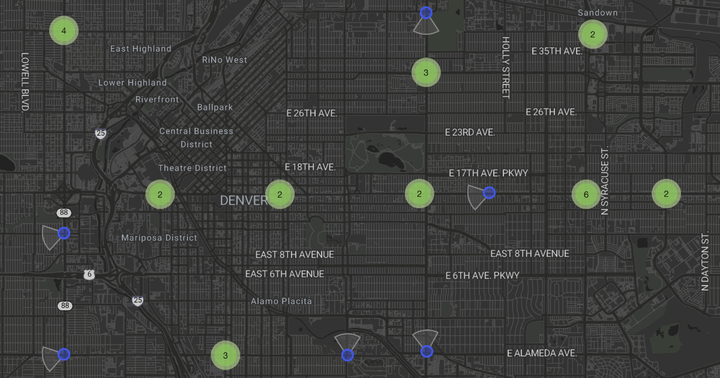
An interactive map of Flock Cams
Agentic Engineering Patterns
This article explores agentic engineering patterns, which focus on empowering users and fostering agency within software systems. It discusses techniques such as progressive disclosure, user-defined defaults, and UI affordances that enable users to customize and tailor applications to their specific needs.

Lenovo’s new ThinkPads score 10/10 for repairability
The article discusses Lenovo's new ThinkPad laptops, which have earned a perfect 10 repairability score from iFixit. The laptops are designed with modularity and easy access to components, making them highly repairable and allowing for extended lifespans.
The L in "LLM" Stands for Lying
The article examines the potential for large language models (LLMs) to generate false or misleading information, and the challenges of ensuring the reliability and truthfulness of LLM outputs.

TikTok will not introduce end-to-end encryption, saying it makes users less safe
The article discusses the rising costs of living in the UK, with inflation reaching its highest level in 40 years. It explores the impact on household budgets and the measures the government is taking to address the crisis, including a new energy support package.
GPT‑5.3 Instant
OpenAI announces the launch of GPT-5.3, a powerful new language model with advanced capabilities in natural language processing, content generation, and task completion.
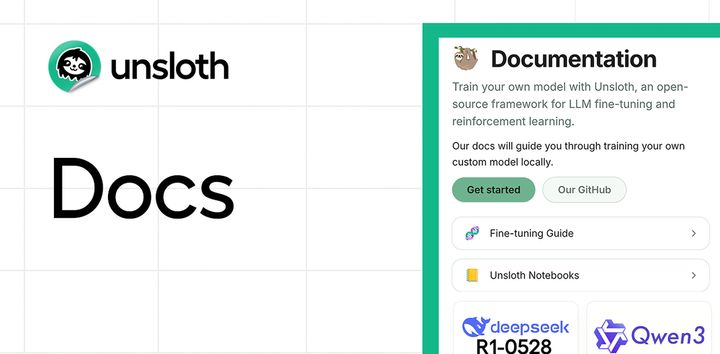
Qwen3.5 Fine-Tuning Guide
The article provides an overview of the Qwen 3.5 model, a language model developed by Anthropic. It discusses the model's capabilities, applications, and potential use cases, making it a valuable resource for developers and researchers interested in natural language processing.

Government grant-funded research should not be published in for-profit journals
The article discusses a proposal for a simple, cost-effective reform to improve scientific research by requiring researchers to pre-register their studies and analysis plans. This would help reduce publication bias and questionable research practices, leading to more reliable and reproducible scientific findings.
Judge Orders Government to Begin Refunding More Than $130B in Tariffs
A U.S. judge has ordered the government to begin refunding over $130 billion in tariffs collected on imports during the Trump administration's trade war with China, a significant ruling that could have far-reaching implications for U.S. trade policy.
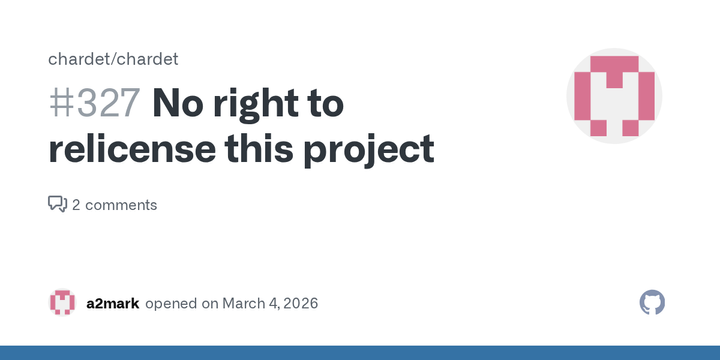
No right to relicense this project
The article discusses an issue with the chardet library, a popular Python module used for character encoding detection. The main point is that the library is unable to detect certain encodings correctly, leading to errors in text processing.
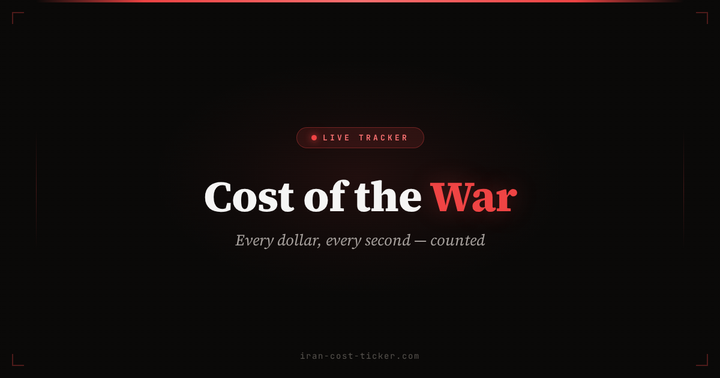
Iran War Cost Tracker
This article provides a real-time cost ticker for the economic situation in Iran, including the current exchange rate, inflation rate, and other key economic indicators.

Making Firefox's right-click not suck with about:config
The article discusses the upcoming changes to the Firefox browser's right-click context menu, aiming to make it more user-friendly and efficient by reorganizing and simplifying the options available.
“It turns out” (2010)
The article explores the concept of 'it turns out' as a linguistic device that can shift the narrative and lend credibility to a claim, even when the underlying evidence is uncertain or the conclusion is speculative.
When AI writes the software, who verifies it?
The article explores the potential impact of AI systems on the software development industry, discussing how AI could automate code writing and revolutionize the software development process, while also raising concerns about the ethical and societal implications of this technology.

Intel's make-or-break 18A process node debuts for data center with 288-core Xeon
Intel's 18A process node debuts in a data center-focused 288-core Xeon processor, featuring 12 channels of DDR5-8000 memory, Foveros Direct 3D packaging technology, and a multi-chip design aimed at high-performance computing workloads.

Moss is a pixel canvas where every brush is a tiny program
Moss.town is a collaborative public art project that allows people to contribute to the growth of a virtual town made of moss. Participants can plant, tend, and watch their digital moss creations thrive as part of the shared environment.
RFC 9849. TLS Encrypted Client Hello
RFC 9849 specifies the Internet Engineering Task Force's (IETF's) processes for managing and maintaining the set of Request for Comments (RFCs), which serve as the authoritative document series for Internet standards and best current practices.
Bet on German Train Delays
Relicensing with AI-Assisted Rewrite
The article discusses the challenges of relicensing software projects and explores the use of AI-assisted rewriting to help streamline the process. It highlights the potential benefits and limitations of using AI tools for this purpose, providing insights for software developers and project managers.

Voxile: A ray-traced game made in its own engine and programming language
Voxray Games, an indie game studio, has released a major update to their game, featuring new gameplay mechanics, improved graphics, and expanded content. The article details the key changes and improvements made to the game, highlighting the studio's commitment to enhancing the player experience.
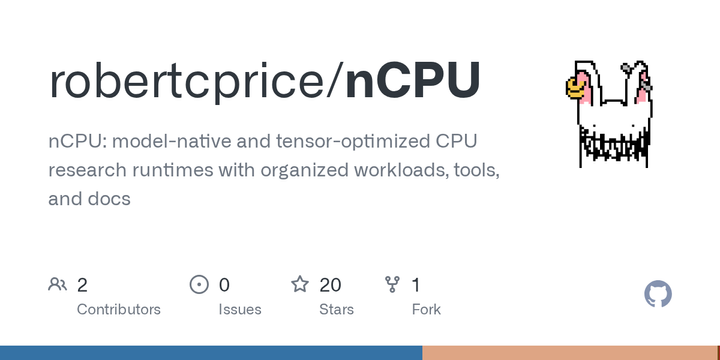
A CPU that runs entirely on GPU
The article describes the development of nCPU, an open-source, modular CPU architecture that can be implemented using field-programmable gate arrays (FPGAs). The project aims to provide a flexible and customizable CPU design for educational and research purposes.
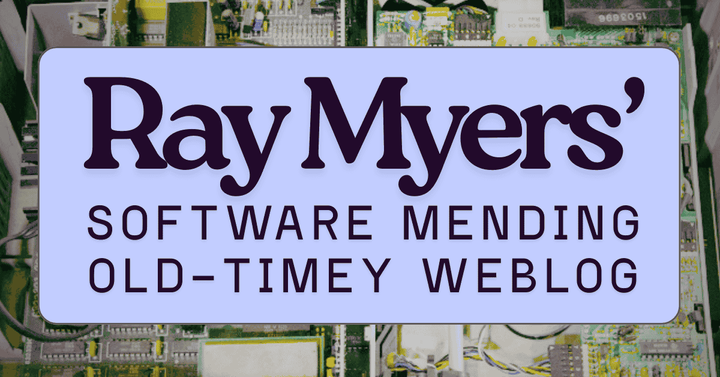
Don't make me talk to your chatbot
The article discusses the frustrations of interacting with chatbots, highlighting the limitations of current conversational AI and the need for more human-like interactions. It advocates for a balance between automation and meaningful human support, emphasizing the importance of empathy and effective problem-solving in customer service.
Nvidia PersonaPlex 7B on Apple Silicon: Full-Duplex Speech-to-Speech in Swift
The article discusses the development of Nvidia's PersonaPlex 7B, a language model that can perform full-duplex speech-to-speech translation on Apple Silicon devices using the native Swift programming language and the MLX framework.